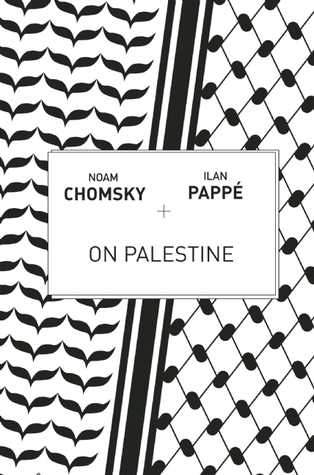On Palestine
Noam Chomsky, Ilan Pappé
My rating: 5/5

I picked up “On Palestine” at the height of the Israel Palestine conflict in May 2021. It is an interesting summarization of Zionism and the history of Israel and is very poignant and concisely organised. The first part deals with the past, present, future of the conflict and context from within Israel and its relationship with the United States. The second part discusses Gaza, genocide, violence and possible solutions.
It is evident that the global perspective on the Israel-Palestine conflict is shifting across the world and especially within the United States. A point the authors drive home is how Israel exists as a colonial state, a 19th century installation, in a 21st century post colonial world and why the repatriation of European Jews post Holocaust came at the cost of the Arabs, instead of either Europe or the United States creating a soveriegn state within their geographic boundaries. As it stands, the book also provides insights into zionist propaganda taught in schools in Israel and the everyday implementation of the apartheid regime, such as a gradual occupation of the West Bank. The differences between the Palestinian Authority and Hamas provides a divided front representing Palestinians which gives Israel a way out from acknowledging or negotiating with Palestinians on a global platform. Isreal remains a Jewish state and a dmeocracy with an engineered Jewish majority as long as Palestinian refugees are not allowed back. Additionally, unrelenting support from the US allows for the Jewish state to quell opposition with impunity. This is changing now with the voices of Bernie Sanders and AOC, progresisve wings of the Democratic party changing their tone.
Amidst this, the current state of Gaza is heartbreaking. Unlike the black-white racial equation in the US, the Jews of Israel doesn’t need the Palestinians for their economic growth. As a result, Gaza is a rubble of concrete after repeated bombings to which cement export is banned. More that half of the children are anaemic and most of the population records high levels of malnutrition.
There is also discussion on the one state and two state solution with a note that acknowledging existing borders legistimizes violent occupation of the recent decades. The status of Arabs in a Jewish nation-state is less than ideal given the history of how they were treated and the relationship between the two factions. Much also hinges on the US support of Israel, which is changing due to domestic pressures, the leadership of Israel and the proceeds at the United Nations.
Definitely a must read for anyone interested in global geopolitics.